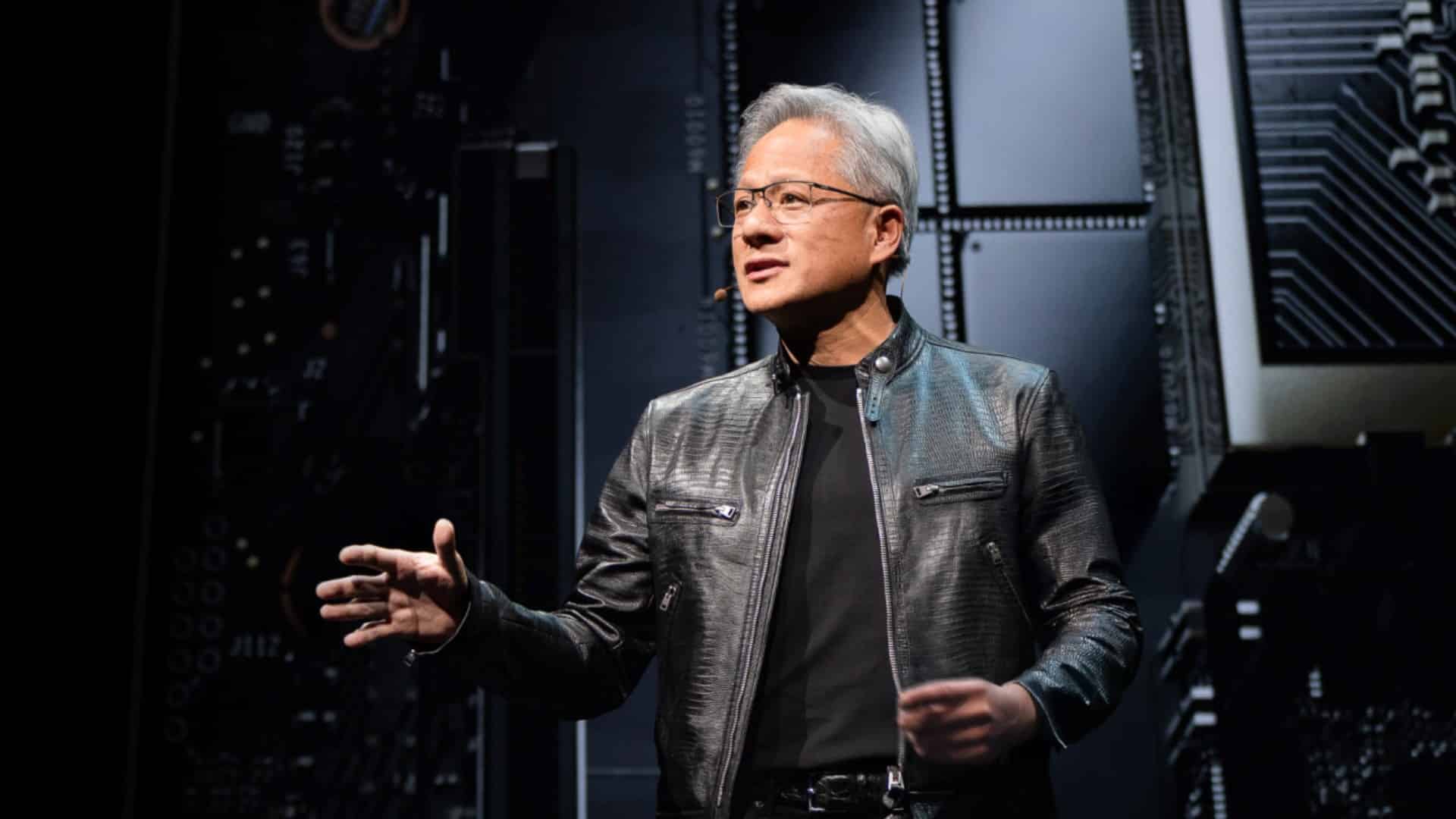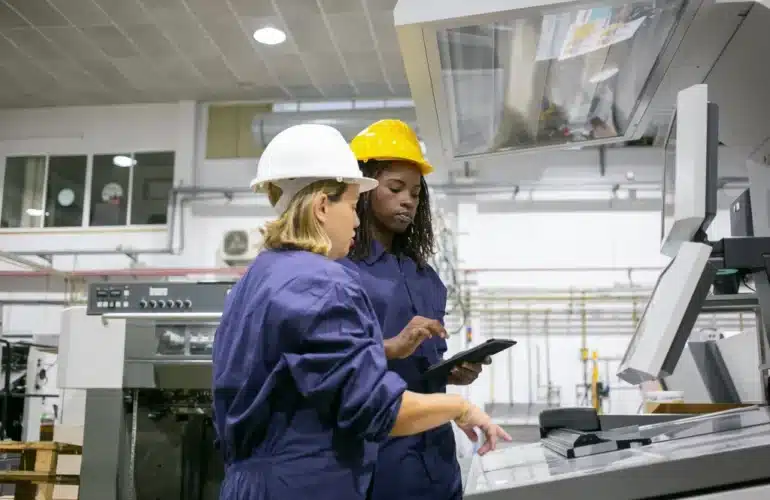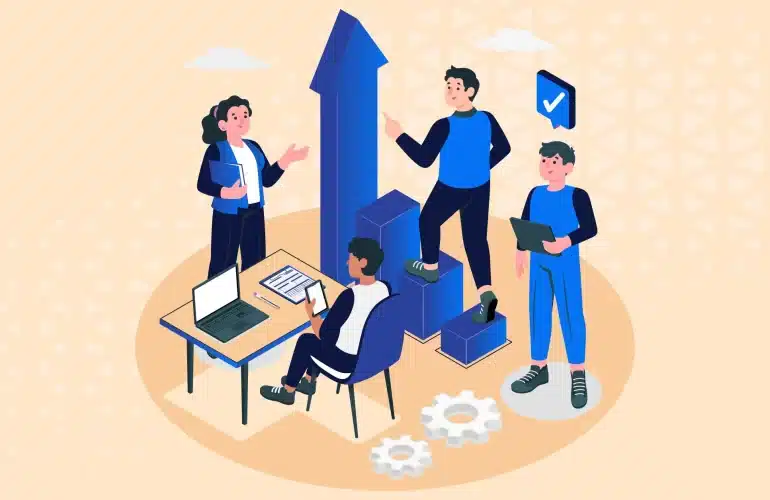Key Takeaways
- Amazon CEO Andy Jassy predicts “efficiency gains” from AI will reduce the company’s workforce.
- Fiverr CEO Micha Kaufman urges employees to become exceptional at their roles to survive AI advancements.
- Nvidia CEO Jensen Huang emphasizes that competition lies in AI proficiency, not in avoiding AI.
- Duolingo CEO Luis von Ahn encourages curiosity towards AI and sees it as a tool to enhance work quality.
- Lowe’s CEO Marvin Ellison advises young workers to stay close to customers for stable job opportunities.
- LinkedIn CEO Reid Hoffman highlights the importance of showcasing AI skills to boost employability.
- Lattice CEO Sarah Franklin suggests leveraging AI to empower employees without overwhelming them.
With the rapid advancement of Artificial Intelligence (AI) technologies, the employment landscape is undergoing significant transformations. Here’s what top CEOs from various industries have to say about how employees can adapt to these changes and thrive in the evolving job market.
Efficiency and Workforce Reduction
Amazon CEO Andy Jassy highlights the potential impact of AI on workforce dynamics, particularly emphasizing “efficiency gains.” These advancements might lead to a reduced corporate workforce as AI automates certain tasks and streamlines operations. This prediction serves as a wake-up call for employees to reassess their roles and seek ways to remain valuable within their organizations.
Becoming Exceptional: The Key to Survival
Micha Kaufman, CEO of Fiverr, urges employees to become exceptional in their roles. In his opinion, the only way to survive amidst AI advancements is to master one’s craft. This means going beyond the basics and striving for excellence in specific job functions. Whether you’re a programmer, a designer, or in any other role, becoming indispensable by enhancing your skills will help you stay ahead of the curve.
Embrace AI: A Competitive Edge
Nvidia’s CEO, Jensen Huang, believes the future of employment is not about avoiding AI but rather embracing it. The competition will be between those who can leverage AI versus those who cannot. Employees should focus on acquiring AI-related skills and knowledge to gain a competitive edge and demonstrate their ability to integrate AI into their workflows productively.
Curiosity Over Fear: Adapting to AI
Luis von Ahn, the CEO of Duolingo, advocates for responding to AI advancements with curiosity rather than fear. AI should be perceived as a tool that can enhance the quality of work rather than replace human jobs. Embracing this perspective, along with a willingness to learn and integrate new technologies, can lead to productive and innovative workplace environments.
Customer Connections: Ensuring Job Stability
For those concerned about job stability, Marvin Ellison, CEO of Lowe’s, recommends staying connected with the core aspects of business—namely, the customers. By staying “close to the cash register,” employees can ensure they remain integral to the company’s success. Roles that involve direct customer interaction and understanding are less likely to be impacted by AI advancements.
Showcasing AI Skills
LinkedIn CEO Reid Hoffman highlights the importance of showcasing AI proficiency. As job markets become increasingly competitive, demonstrating AI skills can significantly boost employability. For younger generations entering the workforce, this is especially crucial, as possessing such skills can set them apart from their peers.
Empowering, Not Overwhelming: The Role of AI at Work
Sarah Franklin, CEO of Lattice, believes in using AI to empower employees rather than overwhelm them. Companies should focus on how AI can enhance productivity without adding stress to employees’ workloads. This might involve using AI tools to automate administrative tasks, giving workers more time and resources to focus on strategic and creative tasks.
Strategies to Adapt to the AI Job Market
- Continuous Learning: Embrace Lifelong Learning and Professional Development to Stay Ahead.
- Skill Enhancement: Focus on both technical and soft skills, as AI proficiency is key.
- Networking: Engage with industry professionals who are also navigating the AI landscape.
- Experimentation: Don’t shy away from using new AI tools and technologies.
- Flexibility: Be open to changing roles or responsibilities as AI reshapes industries.
Adaptation is the key to surviving and thriving in the AI revolution. By harnessing insights from top industry leaders, employees can better prepare themselves for the future job market. Whether it’s by becoming masters in their fields, embracing new tools, or staying connected with consumer needs, there are many pathways to remain relevant and excel in a world increasingly shaped by AI.




